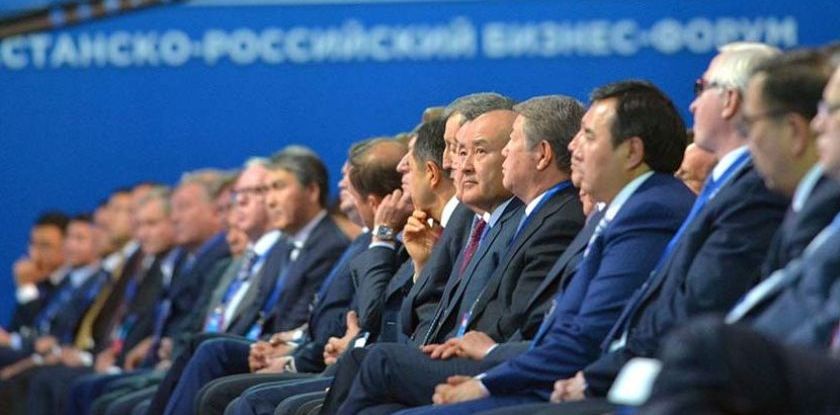We allow for the fact that we might be overly pessimistic, but we forecast that the current economic, social, political and other crises in Kazakhstan will drag on for many years. This is primarily due to the fact that the ruling elite is unable to perform their functions well.
For this reason, it will strive to preserve the so-called existing stability, i.e. at least preserve the existing order of things. More likely, though, due to the arising challenges, the elite will be forced to toughen up with regards to both the existing political regime as well as regarding the everyday practice of restricting any civilian activity it deems dangerous or suspicious.
The only area in which we might see partial improvements is the economy. Nonetheless, even an increase in economic growth will not have positive social or domestic policy effects, since it will only have a weak and delayed positive effect on the material well-being of regular citizens of the country.
Under these conditions, Kazakhstanis will continue trying to survive on their own, choosing based on personal capabilities and desires on of two things; either leaving the country or focusing inward, that is alienating themselves from the government, country and society. Only a portion of civilians will be trying to make a difference, though there won’t be many of them, mostly due to political purges.
Still, this is the most optimistic scenario that we can arbitrarily call a state of stagnation. All of the other scenarios are much worse, including a possible breakdown of the country into several regions adjoining Russia and China, with some kind of a neutral territory in the middle of the current state of Kazakhstan. Keeping in mind that such risks are growing with every passing day, there is sense in examining not only concrete ways of resistance, but also of preventing this situation from becoming reality.
The easiest option is to secure guarantees from Russian side, Chinese side or both. Military and political power, as well as economic strength of our northern and southern neighbors allow for a radical solution to the problem, but will inevitably lead to a loss of sovereignty.
Another option is mobilizing of the ruling elite of the country first, and then of the general population, with the goal of ending the crisis, followed by the policies aimed at advancing the development of the country, its economy and society. It is worth noting that Nursultan Nazarbaev and his allies have been trying to organize such a movement for many years, to no avail. The reasons for why there weren’t able to do it are plentiful, but there is no point in examining them here, What is important to note however, is the fact that Russian populist model of galvanizing the country, is not suitable for Kazakhstan, partly because we can’t afford to have external enemies on a government level.
Another possible option is a severe rapture among the ruling elite, after which inner-circle, inter-clan controversies will transform into political and ideological ones. As a result, some forces will arise, that will want and be able to offer reforms.
Having said that, these reforms won’t necessarily have a democratically oriented character and offer continuing development of the economy via free-markets. Nonetheless, an influential group of people will occur, that will form an agenda and will be ready to implement it, by taking upon themselves responsibility for the future of Kazakhstan. That in itself is already crucial, being a step in some direction.
The fact that it is possible is proven by history. Eurasian continent experiences an interesting phenomenon about every twenty years, when out of nowhere, a big group of people surfaces. This group, disgruntled with the status quo, begins to find ways of getting out of the crisis and examines the ways of solving existing problems, eventually coming up with certain reforms. This happened in the 1950s and 1980s and then in the beginning of the new century. Curiously, the formation of the civil movement Kazakhstan’s Democratic Choice, fifteen years ago, fits this trend.
We won’t try to explain the phenomenon that might be related to the change of generations in the society, but we will speculate, with high certainty, that around year 2020 Kazakhstan will witness changes, reminiscent of the ones that preceded the formation of Kazakhstan’s Democratic choice. Once again, we want to point out that reforms that will be offered might turn out to be quite unexpected. For example, Kazakhstanis might be offered hereditary monarchy, coupled with responsible government in which people of Kazakh ethnicity who know the language, will have a right to citizenship and social services.
Thus, a forthcoming transfer of power in Kazakhstan from Nazarbaev to his successor is just a change of a face that personifies current political regime, heads the government and serves as the top facilitator between the members of the ruling class. Such a shuffle can happen with varying regularity, depending on the balance of power in the country, without changing much in reality. Thus, a more important question is whether the ruling elite will be able to recognize its responsibility for the government and galvanize, in order to make the country and its economy able to compete in this world. If yes, when will it happen?




